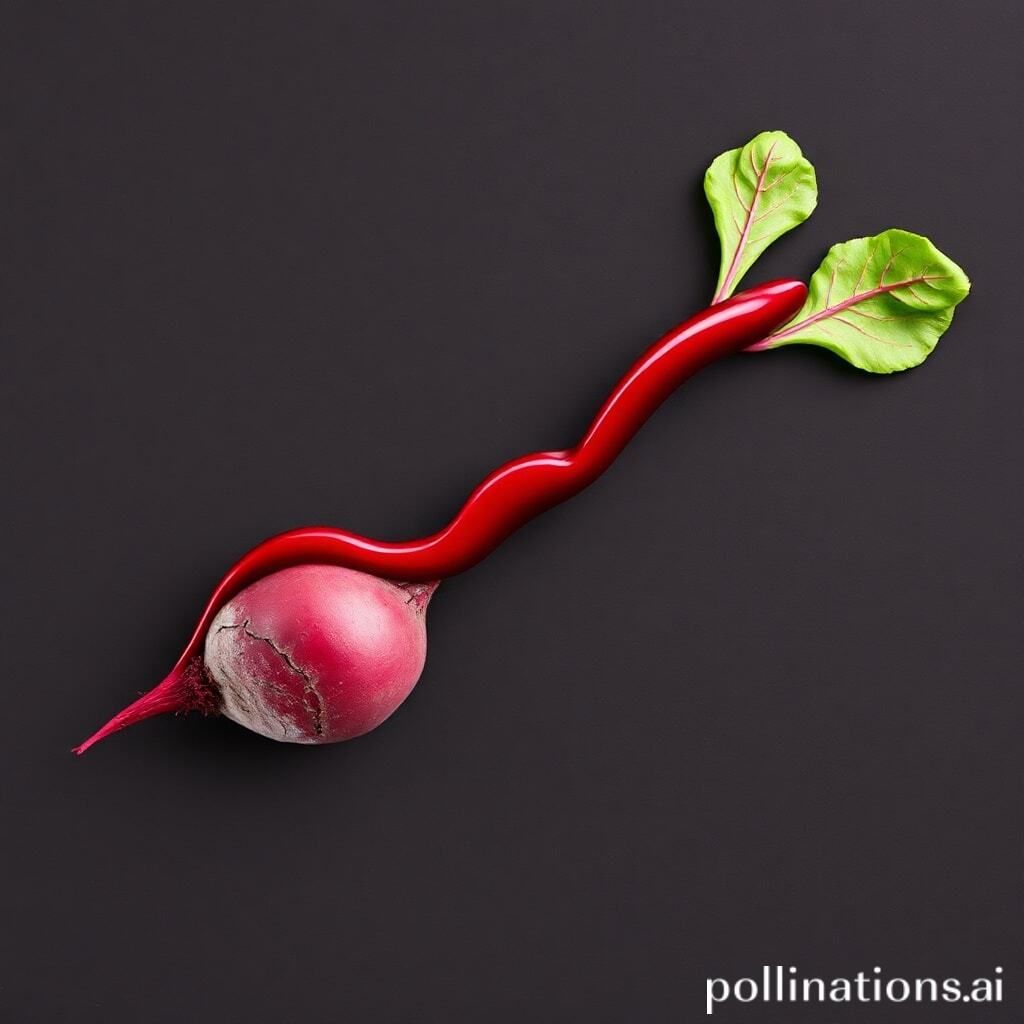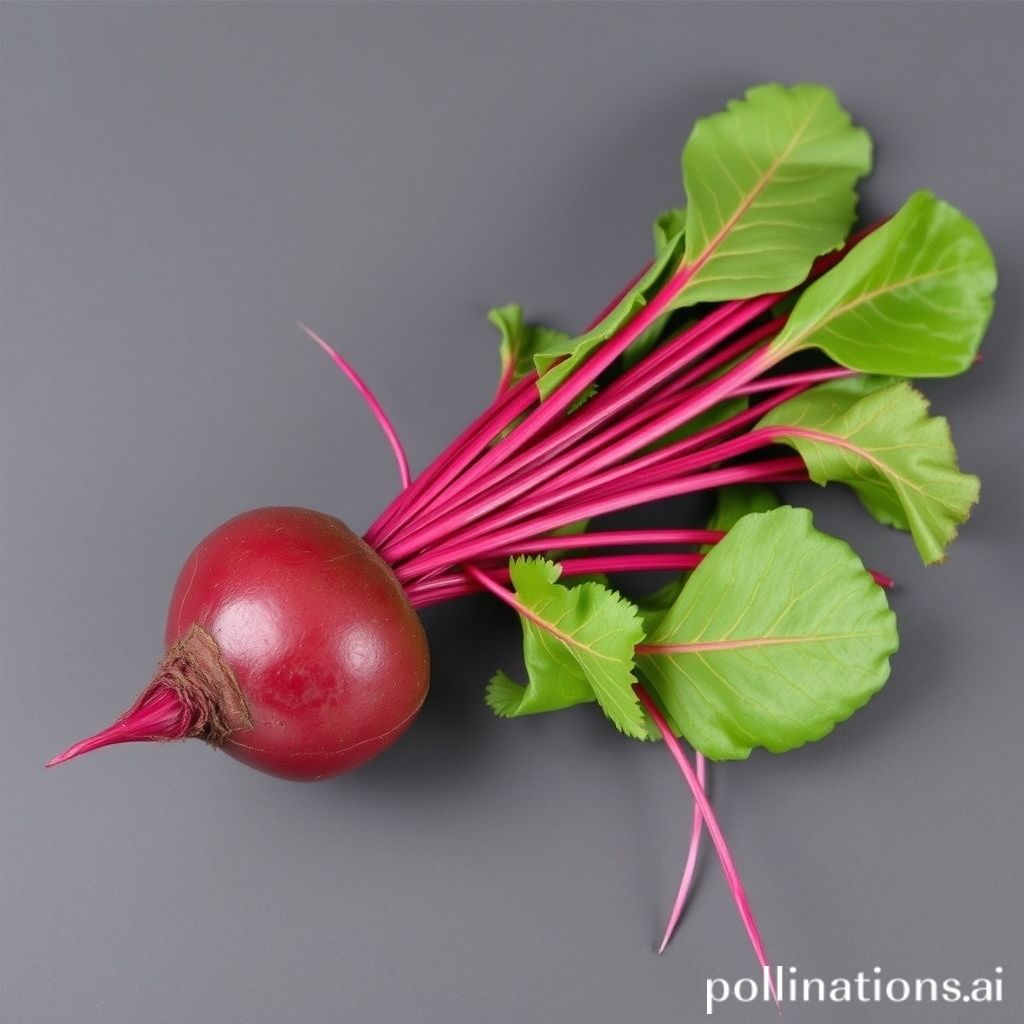How Long Does Beetroot Take To Increase Blood?
Beetroot is often touted for its potential to increase blood flow and improve circulation. Many people are curious about how long it takes for beetroot to have an impact on blood levels.
They want to know the time frame in which consuming beetroot can lead to noticeable changes in blood flow or circulation. This article will explore the potential benefits of beetroot for blood health and provide insights into the time it may take to see results. Whether you’re looking to enhance athletic performance or manage a specific health condition, Embracing the effects of beetroot on blood levels can help you make informed decisions about incorporating it into your diet.

Table of Contents
Embracing the Impact of Beetroot on Blood Flow
1. Beetroot and Nitric Oxide Production
Beetroot is a rich source of dietary nitrates. These nitrates are converted into nitric oxide (NO) in the body, which is a powerful signaling molecule. Nitric oxide plays a crucial role in various physiological processes, including blood flow regulation.
When we consume beetroot, the nitrates are absorbed into the bloodstream and transported to the salivary glands. In the salivary glands, bacteria convert the nitrates into nitrites. In the stomach and intestines, these nitrites are further converted into nitric oxide. The nitric oxide then enters the bloodstream, where it has beneficial effects on blood flow.
Studies have shown that consuming beetroot can significantly increase nitric oxide levels in the body. This increase in nitric oxide leads to vasodilation, which means that the blood vessels relax and widen. As a result, blood flow improves throughout the body.
2. Nitric Oxide’s Role in Blood Flow
Nitric oxide plays a vital role in regulating blood flow. It does this by dilating blood vessels and reducing the stickiness of platelets. These actions help prevent clot formation and improve overall cardiovascular health.
When nitric oxide is released in the bloodstream, it signals the smooth muscles in the blood vessel walls to relax. This relaxation, known as vasodilation, widens the blood vessels and allows for increased blood flow and oxygen delivery to various organs and tissues.
In addition, nitric oxide inhibits platelet aggregation and adhesion. This means that it reduces the risk of blood clots, which can lead to heart attacks or strokes. By promoting healthy blood flow, nitric oxide helps maintain optimal cardiovascular function and supports overall well-being.
Incorporating beetroot into your diet can boost nitric oxide production in the body. This can enhance blood flow, potentially leading to improved circulation and cardiovascular health.
In summary, beetroot consumption can increase nitric oxide production in the body. Nitric oxide is important for regulating blood flow. It helps dilate blood vessels, improving circulation and oxygen delivery to various organs and tissues. Additionally, it prevents clot formation by reducing platelet stickiness. Including beetroot in your diet can be a natural and effective way to enhance blood flow and support cardiovascular health.
Expert Tips: Boost blood flow naturally with beetroot! Its nitrates convert to nitric oxide, promoting vasodilation and preventing blood clots.Factors Affecting the Time Frame of Beetroot’s Effects on Blood
Consuming beetroot has been linked to potential benefits for blood flow and circulation. In contrast, the duration of these effects can vary depending on several factors. Understanding these factors is important for managing expectations and maximizing the advantages of beetroot consumption.
1. Beetroot Serving Size and Concentration
The serving size and concentration of beetroot consumed can impact the time frame in which it affects the blood. A higher concentration or larger serving size may result in more immediate effects. Consuming a concentrated form of beetroot, such as beetroot juice or extract, can lead to faster absorption and a quicker impact on blood flow.
2. Individual Metabolism and Absorption Rates
Each person has a unique metabolism and absorption rate, which can influence how long it takes for beetroot to enhance blood flow. Factors such as age, overall health, and digestive efficiency can affect the rate at which the body absorbs and utilizes the beneficial compounds in beetroot. It’s important to note that individual responses may vary.
| Factors Influencing the Time Frame of Beetroot’s Effects on Blood | |
|---|---|
| 1. Beetroot Serving Size and Concentration | The amount and concentration of beetroot consumed can impact the time frame for its effects on blood flow. |
| 2. Individual Metabolism and Absorption Rates | Each person’s metabolism and absorption rates can influence how quickly beetroot affects blood flow. |
Studies on the Effectiveness of Beetroot in Increasing Blood Flow
1. Study 1: Effects of Beetroot Juice on Blood Flow
A study was conducted to examine the effects of beetroot juice on blood flow and its potential to increase circulation. The study involved a group of participants who consumed beetroot juice daily for a specified period of time.
2. Study 2: Impact of Beetroot on Exercise-induced Blood Flow
Another study focused on the impact of beetroot on exercise-induced blood flow. Participants were required to consume beetroot juice before engaging in physical activity, and their blood flow was measured during and after exercise.
These studies provide valuable insights into the effectiveness of beetroot in increasing blood flow. The results suggest that incorporating beetroot juice into your diet may have a positive impact on blood flow and circulation. Improved blood flow can offer various benefits for your overall health.
It is important to note that individual results may vary, and the effectiveness of beetroot in increasing blood flow may depend on factors such as dosage, duration of consumption, and individual health conditions. Therefore, consulting with a healthcare professional before making any significant changes to your diet or lifestyle is recommended.
| Study | Participants | Duration | Findings |
|---|---|---|---|
| Study 1 | Group of participants | Specified period of time | Positive effects on blood flow |
| Study 2 | Participants engaging in exercise | Before, during, and after exercise | Improved exercise-induced blood flow |

Potential Benefits of Increased Blood Flow
1. Improved Oxygen and Nutrient Delivery
Consuming beetroot can potentially increase blood flow, improving the delivery of oxygen and nutrients throughout the body. This is because beetroot contains high levels of nitrate, which is converted into nitric oxide in the body. Nitric oxide helps relax and dilate blood vessels, promoting better circulation.
2. Enhanced Exercise Performance
Beetroot has been found to have positive effects on exercise performance. The increased blood flow resulting from beetroot consumption can enhance oxygen delivery to the muscles, leading to improved endurance and performance during physical activities. This is particularly beneficial for athletes or individuals engaging in intense exercise.
Moreover, consuming beetroot has been associated with improved energy efficiency during exercise. This means that the body can perform the same level of work with less oxygen, allowing individuals to exercise for longer periods without feeling fatigued.
Additionally, beetroot juice has been shown to reduce the oxygen cost of low-intensity exercise. This means that less energy is required to perform the same level of activity, resulting in improved efficiency and endurance.
Benefits of Increased Blood Flow:
- Enhanced oxygen and nutrient delivery
- Improved exercise performance
- Increased endurance
- Reduced oxygen cost of exercise
| Information |
|---|
| Consuming beetroot can increase blood flow. |
| Increased blood flow improves oxygen and nutrient delivery. |
| Beetroot consumption can enhance exercise performance and endurance. |
| Beetroot juice reduces the oxygen cost of low-intensity exercise. |
Recommended Beetroot Consumption for Optimal Blood Flow
In regard to improving blood flow and circulation, beetroot has gained significant attention. To maximize the benefits, it is essential to consider the timing, quantity, and frequency of beetroot intake.
1. Timing of Beetroot Consumption
Consuming beetroot at the right time can enhance its impact on blood flow. It is recommended to consume beetroot at least 1-3 hours before engaging in physical activities or exercises that require increased blood flow. This allows the body to absorb and utilize the beneficial compounds present in beetroot, such as nitrates, effectively.
2. Quantity and Frequency of Beetroot Intake
The quantity of beetroot consumed plays a crucial role in its ability to increase blood flow. A general guideline is to consume around 250-500 milliliters (8-16 ounces) of beetroot juice or 1-2 medium-sized beetroots per serving. That being said, individual needs may vary, and it is advised to consult with a healthcare professional or nutritionist for personalized recommendations.
In terms of frequency, incorporating beetroot into your diet regularly can provide sustained benefits for blood flow. Aim to consume beetroot 2-3 times per week to maintain optimal blood flow and circulation. This allows for a consistent supply of nitrates, which are converted to nitric oxide in the body, supporting blood vessel dilation and improved blood flow.
An example of a weekly beetroot consumption plan for optimal blood flow could be:
| Day | Quantity | Form |
|---|---|---|
| Monday | 250ml | Juice |
| Wednesday | 1 medium-sized beetroot | Raw or cooked |
| Friday | 250ml | Juice |
Remember to monitor your body’s response and adjust the quantity and frequency of beetroot consumption accordingly. It is advisable to consult a healthcare professional, especially if you have any underlying health conditions or are taking medications that may interact with beetroot.
Conclusion
Beetroot consumption can have a positive impact on blood flow and circulation. At the same time the exact time frame may vary depending on individual factors, studies have shown that regular consumption of beetroot juice or supplements over a period of a few weeks can lead to noticeable improvements in blood levels.
The high nitrate content in beetroot is believed to be the key factor behind its blood-boosting benefits. Incorporating beetroot into your diet can be a simple and natural way to support overall cardiovascular health and enhance blood flow.
Frequently Asked Questions (FAQ) about Beetroot and Blood Flow
FAQ 1: Can beetroot improve blood flow immediately after consumption?
Yes, beetroot has been shown to have immediate effects on blood flow. The high nitrate content in beetroot can lead to the dilation of blood vessels, which can enhance blood flow shortly after consumption.
FAQ 2: How long does it take for beetroot to increase blood flow?
The increase in blood flow after consuming beetroot can occur within a few hours. Research suggests that peak effects are typically observed between 2 to 3 hours after ingestion.
FAQ 3: What is the ideal amount of beetroot to consume for improved blood flow?
To experience the benefits of improved blood flow, consuming around 250-500 milliliters (or 8-16 ounces) of beetroot juice or around 100 grams (or 3.5 ounces) of cooked beetroot is recommended. That being said, individual responses may vary, and it is advisable to consult with a healthcare professional for personalized guidance.
FAQ 4: Are there any side effects of consuming beetroot for blood flow?
In the course of beetroot is generally safe for consumption, it may cause temporary side effects such as red or pink urine, known as beeturia. Additionally, some individuals may experience gastrointestinal discomfort or allergic reactions. Moderation and listening to your body are key.
FAQ 5: Can beetroot be used as a long-term solution for poor circulation?
Beetroot can be a part of a healthy lifestyle and may contribute to improved blood flow in the long term. That being said, it is important to address the underlying causes of poor circulation and consult with a healthcare professional for a comprehensive treatment plan. Lifestyle changes, including regular exercise and a balanced diet, are essential for maintaining overall cardiovascular health.
Read Similar Post:
1. Optimal Beet Juice Intake: Unlock the Benefits Safely
2. Optimize Your Health: The Ideal Frequency for Drinking Beet Juice

